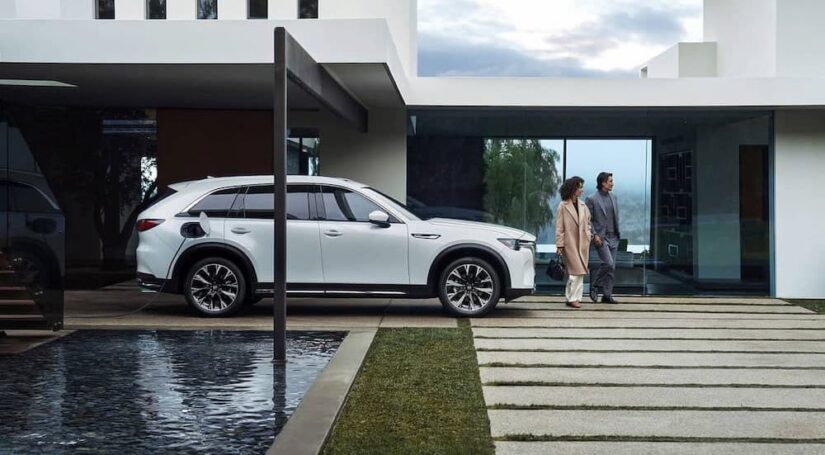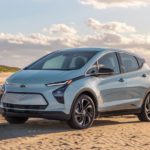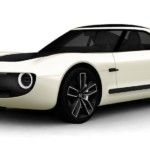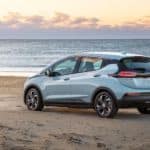Do you remember learning in school about the stages of adoption regarding technology? There are the innovators who come up with new and improved ways to communicate and perform daily duties, the early adopters who jump on a trend the moment it emerges, and then there are the rest of us. Well, there are a few more stages of adoption, but this is how things tend to go more often than not. Everything from smartphones to the internet has had its fair share of adopters of all stages, and it pays to wait a bit to let those who are eager work out all of the bugs. It saves the rest of us time and hassle, and if you are not ready to adopt a trend, who says you should be forced to adopt it?
This adage hits home with some of the latest innovations and trends in the automotive industry, especially when it comes to electric vehicles. There have been reports that industry giants like Ford and Chevy, who are investing billions in the EV market, are surprised that EV sales are not picking up as expected. How is this a new thing, however? Did families across the globe immediately adopt the Internet the day it debuted? Was social media the preferred way to communicate when it first came onto the scene? Of course not, so why should EVs be any different?
Not only do many of us have newer gas-powered vehicles that we can’t afford to part with yet, but some of us are not entirely interested in EVs at the moment, as we are focused on other aspects of our lives. Are we all considered late adopters because we are not chomping at the bit to drive an EV? The fact of the matter is, is that the EV industry has changes to make before the masses are willing to adopt this form of travel into their daily lives. Here is my take on it all.
![]()
EV Sales Stats
According to a Cox Automotive survey, less than 8% of total vehicle sales for 2023 were made up of EVs, even though interest in them has risen from 38% in 2021 to 51% in 2023. More automakers are churning them out; however, dealerships need help getting rid of them. Theories are floating around as to why, which I’ll get into momentarily, but is this indicative of what’s to come for the future of EVs? Are sales ever going to pick up enough to warrant the complete shift that many automakers plan to make in the upcoming years, and should these industry giants hold off a bit longer on converting all of their gas-powered vehicles to electric? Despite the fact that EV sales are picking up, industry professionals predict a plateau is on the horizon.
Why EV Sales May Not Be Where the Industry Had Hoped
Innovators are eager to see their products adopted by the masses, but frequently they get disappointed when consumers are not as willing to try their product the moment it is unveiled. Sometimes, it takes time, and innovators need to have some patience with the adoption process. They must also listen to the feedback of early adopters so that they can make the necessary changes in order to appeal to more consumers. It begs the question, are electric vehicle manufacturers listening to us? Here is what I think are the three main factors that are making EVs less desirable to the nation’s drivers.
Pricing
Although there are many more EV options out there than just a few years ago, there seems to be a trend when it comes to pricing—they’re not cheap. According to Consumer Reports, EVs cost about $12,000 more upfront than the industry average. Major auto insurer Progressive also states that EVs may also cost more to insure because EV components are generally more expensive to replace should the need arise. This is something that many drivers are not ready for, especially those who only want an affordable and reliable way to get to where they’re going each day.
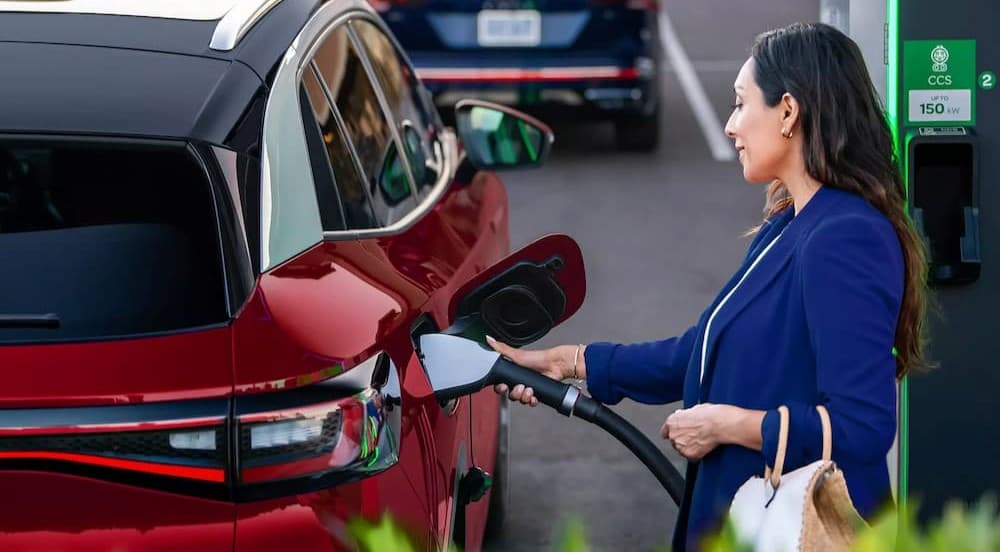
Charging Concerns
Being stranded is the last thing you want to worry about while on the open road. We are used to gas-powered vehicles and have come to expect how they operate, how far they can travel, and when they need a fill-up. On the other hand, we are not too familiar with the EV battery range, which can deviate from industry claims. Just because the EV you are driving is rated to get 300 miles of range on a single charge, it does not mean you will get that.
In addition, gas stations are a dime a dozen. They are everywhere, on every street corner, and in every town. Charging stations? Not so much. Although more charging stations are being built regularly, they still can’t compete with the number of gas stations located across the country. I don’t know about you, but I do not want to risk running out of battery and having no way to get home. At least if I run out of gas, I can Uber to the gas station, buy a gas can, and fill it up. If I were driving an EV, I would have to tow it to the nearest charging station. I think I can speak for the masses when I say no thanks. Build more charging stations, and more people will adopt EVs.
Availability
Another significant factor when it comes to EV sales is the fact that electric vehicles are less readily available than gas-powered vehicles. In certain towns, sure, there are plenty of EVs to choose from, but not every town and every dealership will have the same selection as others. More often than not, drivers will need to order an EV if they want one, and who wants to wait months for it to arrive when you could pick a vehicle on the lot that’s ready to drive home with you right now?

What EVs Bring to Our Time on the Road
There are many reasons to consider an EV for your travels…eventually. For one, they are ultra-sleek and stylish, loaded with some of the most incredible tech features we have ever seen. Of course, that will make the drive more fun. They’re also quieter than gas-powered options if that is a concern for you. Suppose you get a charging routine down, like plugging your EV into your home charging station after work. In that case, you most likely won’t have to worry about running out of battery unless an unexpected delay causes you to spend more time in traffic on your way to the office. Automakers also claim they are more affordable in the long run since they have fewer moving parts and require less frequent maintenance.
Are We All Late Adopters?
So, are we all considered late to the game when it comes to taking the leap and buying an EV? Despite what some automakers want you to believe, we are not all late adopters. Many of us are taking a wait-and-see approach, giving automakers enough time to work out the kinks, build more charging stations, and improve availability in certain markets. If you have ever heard the term, “If you build it, they will come,” then you know that if EVs were more readily available, more people would be willing to try them. Only time will tell, but in my opinion, EVs still have a long way to go, which makes me think that maybe it is not in any automaker’s best interest to switch from gas-powered vehicles to EVs in most of their lineups anytime soon.
